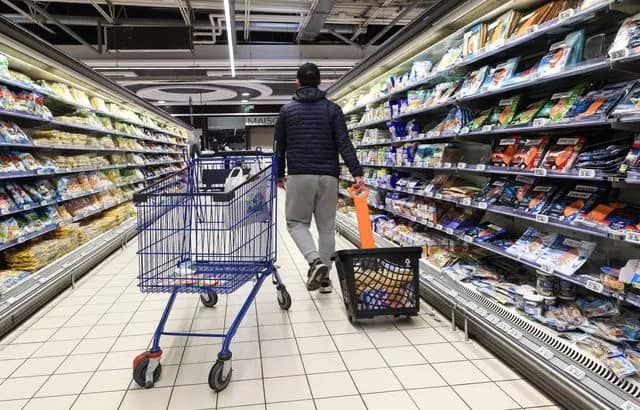Inflation: System U Threatens to Remove Overpriced Brands from its Shelves

CONSUMPTION: The CEO of U brands believes that manufacturers are not playing the game while the costs of raw materials and energy have fallen
“The time is to make more radical choices, including in this consumption ”. Invited to the BFMTV set on Tuesday evening, the chairman and CEO of System U threatened to withdraw from the shelves certain brands that are not playing the game in this difficult period. According to Dominique Schelcher, some manufacturers have not stopped the rise in prices while the cost of raw materials has fallen. “Anger is brewing,” he warned.
At the end of March, the U brands had already decided to no longer sell products from the PepsiCo France group. “The price increase requested by Pepsi was more than 20%, we did not understand it. It was not justified,” explained Dominique Schelcher.
“Leading a fight for the consumer”
The retail company could therefore do the same with other partners. “In Germany, brands have radically removed entire brands from their shelves to wage a fight for the consumer. If necessary, we will do it”, warns the CEO, who foresees inflation between “23 and 25% on food by the end of June”.
Manufacturers who hide behind the international context to explain the rise in prices? The observation is the same with Michel-Edouard Leclerc, interviewed at the start of the week by France Inter. “Manufacturers are not transparent and therefore there are tensions in the stores,” said the president of the strategic committee of the E. Leclerc centres.
Towards new negotiations?
“Industrialists have masked themselves a lot behind the war in Ukraine, the scarcity of certain products, but hey, it’s starting to do well when we talk about coffee and cocoa”, also lamented Michel-Edouard Leclerc while affirming that he did not understand the 40% increase in the price of pasta in recent months.
Like the Minister of the Economy, Bruno Le Maire, Dominique Schelcher invites industrialists to get back around the table to negotiate. In France, the agreements between large retailers and manufacturers are concluded before the end of February. But the current context and the fall in the cost of energy and raw materials must, according to him, lead to new negotiations.
Enjoyed this? Get the week’s top France stories
One email every Sunday. Unsubscribe anytime.


